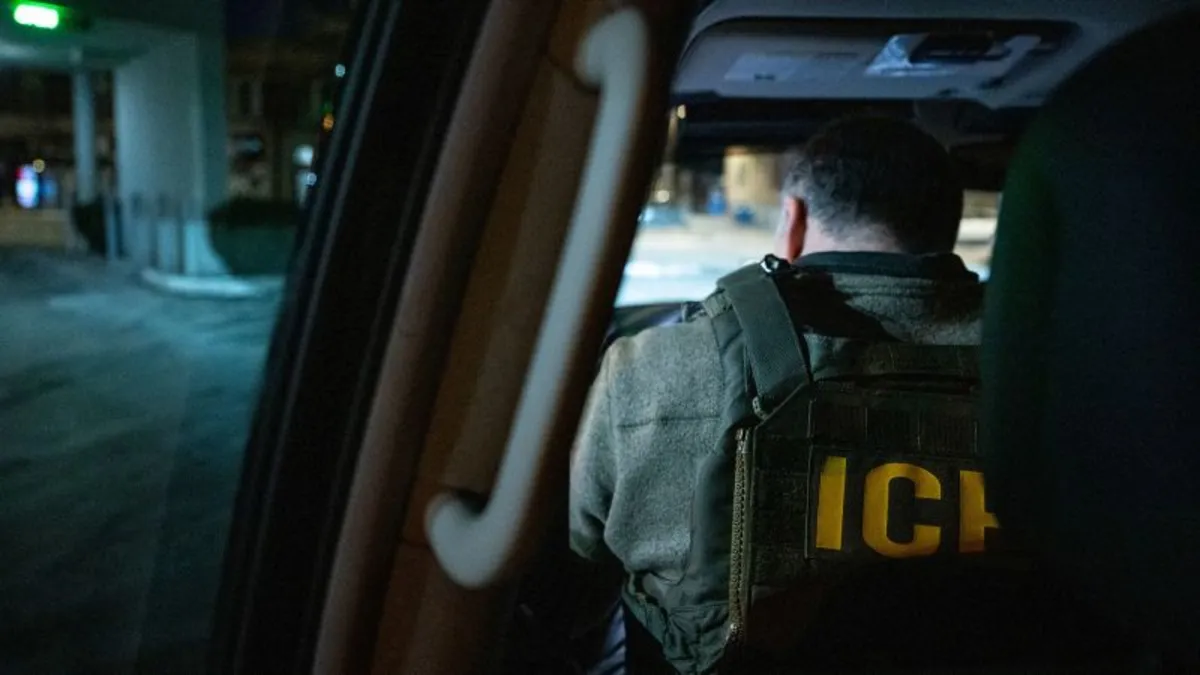
The Trump administration is gearing up to launch a significant immigration enforcement operation in Chicago as early as next week, according to multiple sources familiar with the planning. This operation represents the latest clash between President Donald Trump and the Democratic leadership in the city. Trump and his aides have consistently criticized Chicago for its policies that restrict cooperation between local authorities and federal immigration enforcement agencies.
Chicago has faced a surge in migrant arrivals during the Biden administration, primarily due to increased crossings at the US southern border and the actions of Texas Governor Greg Abbott, who has transported migrants to cities led by Democrats. Notably, Chicago was one of the first cities targeted for immigration enforcement when Trump assumed office in January. The administration also filed a lawsuit against the city over its sanctuary policies, but a judge dismissed the case, stating the federal government lacked the legal standing to proceed. Additionally, attempts to withhold federal funds were similarly blocked by judicial intervention.
The upcoming operations in Chicago are expected to be more extensive, utilizing resources from Immigration and Customs Enforcement (ICE), Customs and Border Protection (CBP), and potentially other federal agencies. Officials are also preparing to deploy the National Guard to assist if a peacekeeping presence is required, similar to the response seen in Los Angeles after protests, according to sources.
Preparations are already in motion, including the deployment of armored vehicles to Chicago in the coming days. Federal agents are expected to be present by next Friday, September 5, when the operation is anticipated to commence. However, discussions are ongoing, and the planning is subject to change.
White House officials have clarified that these immigration enforcement plans are separate from President Trump's recent proposals to utilize federal law enforcement and National Guard troops for a wider crime crackdown in Chicago. These discussions focus on "cleaning up domestic Chicago crime," as described by one official, and are not directly tied to the upcoming immigration operation, despite significant increases in immigration-related arrests following similar initiatives in Washington, D.C.
The framework for the Chicago operation has been modeled on the recent enforcement activities in Los Angeles. The Department of Homeland Security has actively promoted their enforcement operations on social media, touting thousands of arrests. In a recent announcement, the department reported making over 5,000 arrests in Los Angeles since June. Tom Homan, the White House border czar, confirmed that planning for Chicago is still ongoing, with discussions about utilizing a Naval base north of the city as a hub for federal personnel. The Navy has refrained from commenting on potential plans, deferring questions to the DHS.
While Homan did not specify the number of personnel to be deployed, he emphasized that it would be a substantial contingent. "You can expect a ramp-up of operations in Chicago, absolutely," he stated. Gregory Bovino, the chief patrol agent for the El Centro sector, who has overseen operations in Los Angeles, is anticipated to lead the Chicago initiative as well.
A senior official from Homeland Security remarked, "Across the country, DHS law enforcement is arresting and removing the worst offenders, including gang members, murderers, pedophiles, and rapists who have terrorized American communities." They reaffirmed that under Secretary Noem, ICE and CBP are diligently working to fulfill the American public's mandate to arrest and deport criminal illegal aliens, aiming to "make America safe again."
The National Guard's role in Chicago is expected to mirror that in Los Angeles, where troops were under Title 10 orders, federalized and thus restricted from engaging in law enforcement activities due to the Posse Comitatus Act. In contrast, troops in D.C. operate under Title 32 orders, reporting to the governor, but in D.C., this authority is granted to the president and typically assigned to the Army Secretary. The legal landscape would be markedly different if the Trump administration attempted a similar operation in Illinois.
Rachel VanLandingham, a former Air Force judge advocate and current law professor at Southwestern Law School, previously noted that executing a Washington, D.C.-style operation in Chicago or elsewhere poses significant legal hurdles. The current immigration initiative, however, falls firmly within the president's executive authority, according to administration officials.
Illinois Governor JB Pritzker criticized Trump for suggesting an expanded federal presence in Chicago, accusing the administration of "searching for ways to circumvent our democracy, militarize our cities, and undermine elections." He expressed frustration that the federal administration had not coordinated with his office or the mayor ahead of the anticipated deployment, highlighting concerns over the lack of collaboration.